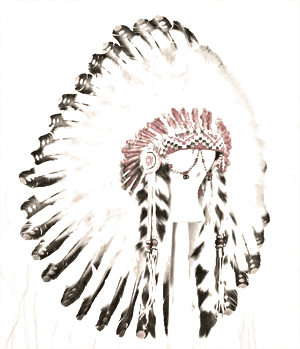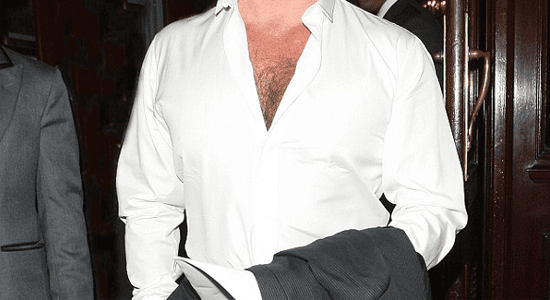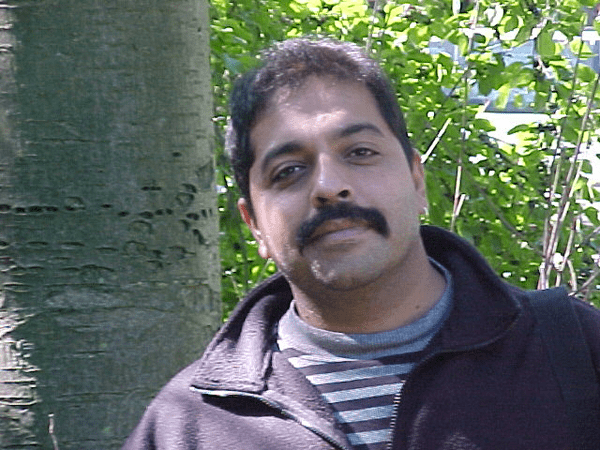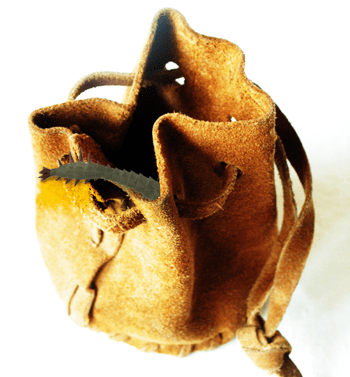O’ come and play dear Golden girl; Elixir as sweet as a mixture of honey And fix me a treat that keeps you so sunny, To trick mine eyes too to shine as a pearl. A sip and my trip is straight into the whirl, And smooth it is so for you are so runny. When with you I see the unimportance of munny, Else my world is a hush, as a thrush or a merl. So roses, I give to you in a hurl, My stomach is full of the fluff of a bunny, O’ come and play dear Golden girl. Do not shy away; my mind is a’ swirl, My moments are captured in drip, drips of honey. So roses, I give to you in a hurl. Whirling in whorls I dream of a world Where you can stay and keep company. O’ come and play dear Golden girl. Half-empty my glass, skies that aren’t sunny, Spinning, no balance, and yarns that aren’t funny. So roses, I give to you in a hurl, O’ Come and play, dear Golden Girl.
Shorthand
The Eagle’s Headdress
From that day that J’uanchok gave me his Eagle’s Headdress to wear on the fullest moons, I haven’t missed a date. Faithfully, under his sentinel glare, I don this white feathered mask like a new skull and marry its spirit— spreading my wings, learning its precision, soaring hawk-like through moonlit forests and over sandy beaches; bumbling bitterly by, my fellow peers mumble their disapproval: “What nonsense!” they snicker. “Such absurdity!” But J’uanchok, arms folded, stands watching from a distance. Only J’uanchok knows that it is no game; only he knows that I’m really learning to fly
Senior Discount
The crowd is as thick as the smoke in the air. His steps are calculated, keeping his distance from the young bodies that dance around him. Hands float through the air, reaching for anything but he returns to the wall, to wait until he is brave enough. Another button is unfastened on his white dress shirt, a hope that he might for a moment feel young again. He sees it. They know. His hair is full, his body is fit, but he is not a part of this world. He had his time. But no more. He would give anything to have it again, to suck out the life and gain back the time he lost. When a young man, eyes blank and hair disheveled, stumbles into his arms, he doesn't say no to clumsy hands and the stench of tequila. He wouldn't dare
Schaghticoke
I never got a good photo of him. Over two months, I got only body parts dismembered from each other. Even though they were behind unstained glass, the listless traffic cops filtered all the life out of even a torso wrapped in a plaid shirt. The distance made distortion echo, (6.6 hours and 624 kilometers of it) and there was only so much I could take. Between two kidneys on the same side, a propensity to do stupid things, the two broken ribs, the dislocated shoulder, and the blackened eye that stopped seeing me at all— (I must remember to remind him: a child with blond hair and green eyes sits with her sandwich, the crusts cut off. I do not want her. I do not want her.) —these were simply hiccups. Mistakes, baby, that he didn’t mean. But I didn’t know how he would end it. I didn’t know he was driving drunk.
Emerging Author of the Month: Sanjay Talreja
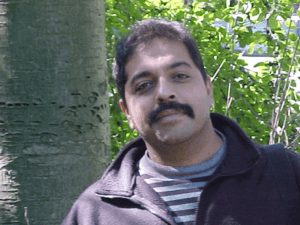
Tell us about yourself.
I am a Toronto-based documentary film-maker, originally from India. I write, direct and edit documentaries and have also recently worked in independent drama projects, including writing scripts for features and shorts. My main interest is in social and political films—broadly defined. I’ve also taught film-related classes at various institutions.
Tell us about the piece you’ve decided to share.
I wrote Homecoming as a creative assignment for a class I took in film school in the US in 1988. It was a short story that came out of my own interests based on the lives of older people, particularly how they were almost invisible. If they were mentioned at all, older people appeared vague and ghostly in the already marginalised stories of immigrants—the edges of the margins, as it were.
Perhaps because I was close to my grandfather, I sensed that something valuable was missing. It seemed to me then, as it does to this day, that older immigrants come to foreign countries with the bulk of their experience and history behind them. Having gone through already full lives in their home countries, they are much more ambiguous about moving to a new country at this life stage; yet, once they are here, they are expected to just get on with it. It is as if the past does not matter. This is what I wanted to explore in this story.
Over the years, Homecoming went through many changes. I decided to write a feature length script out of it but felt that I needed to write a longer story in order to better know the characters and their situations. It went through different incarnations: a 55 page story, a 120 feature length script, then, a 12 page condensed short story and finally, now it has become a novella. I constantly seek to weave in current events in order to make the story more relevant.
When and why did you realize you had a passion for writing?
I can’t think of a time when I haven’t wanted to write. I’ve been writing scripts and short stories since my late teens. It always felt, however, that while my scripts were for larger public presentations, my stories were privately written, only for myself. I’ve filed a whole drawer full of mostly incomplete fictional work, never thinking that I’d like to have them finished or published. It was only recently that I decided to try to get them out into the world.
What pieces of writing/authors have had the greatest impact on you?
I have tremendous respect for authors who don’t consciously seek out to write something as `grand’ as literature. These authors write for wider audiences but are not writing pulp and continue to be interested in writing a novel without compromising their craft or what they are trying to say. Anton Chekhov, Munshi Premchand, Amitav Ghosh, R.K. Narayan, Somerset Maugham, Marquez, Orhan Pamuk, Roberto Bolaño, Vikram Seth . . . the list could go on and on.
Of late, I’ve enjoyed many of the Scandinavian crime and thrillers. Those writers make the crime and the detective form the core of the novel. Yet, context and history is so skillfully woven that as readers, we not only learn about how and if the crime is solved, but find ourselves learning about a constantly evolving, politically charged world that the characters find themselves in.
What kind of writer do you aspire to be?
For me, it is ordinary people who are the most interesting. How they come to be where they are, how they are simultaneously victims of larger events and are yet not crushed or fully formed by those forces—it is that world I want to explore.
Their personal tales and fables, their voices, desires, ambivalence, traits and idiosyncracies . . . amidst current events, history, are all part of what interests me. At the same time, I do not want my writing to be ponderous and heavy. I want to write stories where a discerning smile appears on the reader’s face, and the sting in the tail further enhances the pleasure.
How and when do you find time to write?
I work as an independent film-maker and editor and go through busy periods and also through slow times. I typically write when things are a little quiet on the film front and where I am waiting to hear from broadcasters, commissioning editors or conducting research. But I also know that if I don’t write for a few days, my fingers start itching and I get a little irritable. To keep my juices flowing, I always write short notes and ideas in a book.
The Forbidden Amour
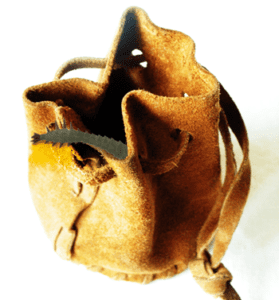
So deadly is the sin. Yet so sweet is the blood. Is it wrong to love your prey? The scent of its skin wanders off. I don’t even know this creature. I have a purpose to accomplish. My teeth seethe venom. One drop flowed into the creature’s mouth and it becomes unconscious. Its eyes are still wide open. I can see the green circles. So bright are the circles. Nothing that is so luminous ever lives on my planet.
I stare at the creature’s face. How wonderful it seems. The body and head are oddly disproportional, with the head being a weird almost sphere-like shape. The creature is starting to wake up. It is stirring and starting to murmur. I put my hand on its mouth. “Shhhh,” I say. The creature seems to be uncomprehending. It continues to thrash. I look into its eyes. I see the life inside of them. My heart yearns for this creature. Its arms are oddly dangled and loose and it seems only to walk on two legs. But I am intrigued. It is those eyes.
I yearn to keep this creature. I will stash it in my cubicle. I will keep it so no one will know. I don’t understand this feeling. If I get caught, I will surely be burned at the stake. My fellow soldiers will accuse me of treason, of helping the enemy. Who knows? Maybe this creature will live with us and contaminate the population like they did to my ancestors, decimating their population.
But that is a risk I am willing to take. I stash the creature in my hunting bag to disguise it as a meal. I quickly board the spaceship. Passing the customs was easy. Yet my breath quickened and my heart thumped uncontrollably. My head felt dizzy. Then everything went black.
When I finally woke up, I was surrounded. The chiefs are all around me. Their eyes are livid. I notice my hunting bag is gone. They must have found out what was inside of it. They must have known. Their eyes are searching my face. My face fills with remorse. What have they done with the creature? I know that I have caused it pain. I lost my chance. I could have just killed it with one bite. Now, it is probably being tortured by the chiefs for information on our enemies. After it has its fingers pulled off and its skin peeled, the chiefs surely would not let it live.
I search around me, moving only my eyes. I see a bloodied body and I start to cry. Blue streams of tears rolled down my cheeks. The chiefs looked at each other in disgust. They would never understand why I feel pity for such a creature. For them, it is like taking the life of a soulless object rather than a living and breathing creature that could feel pain.

